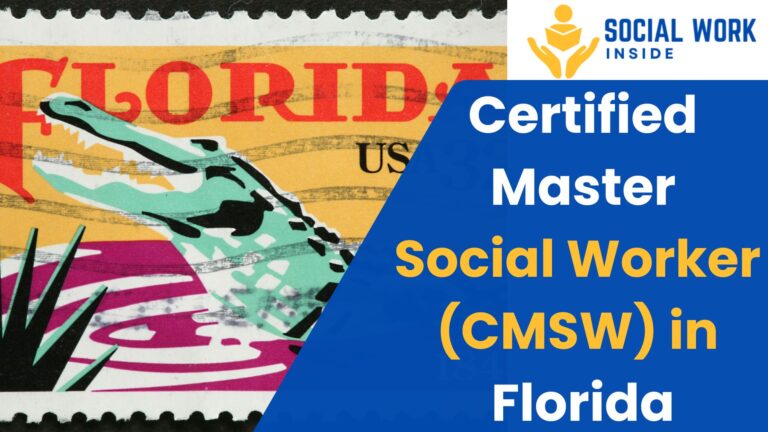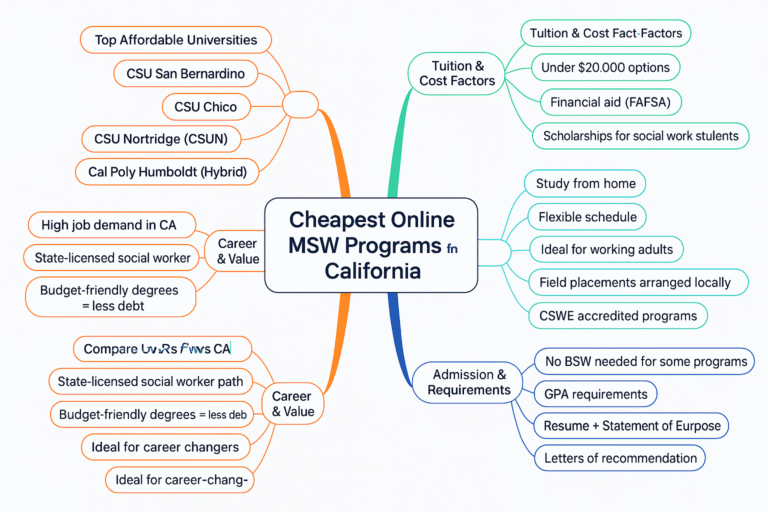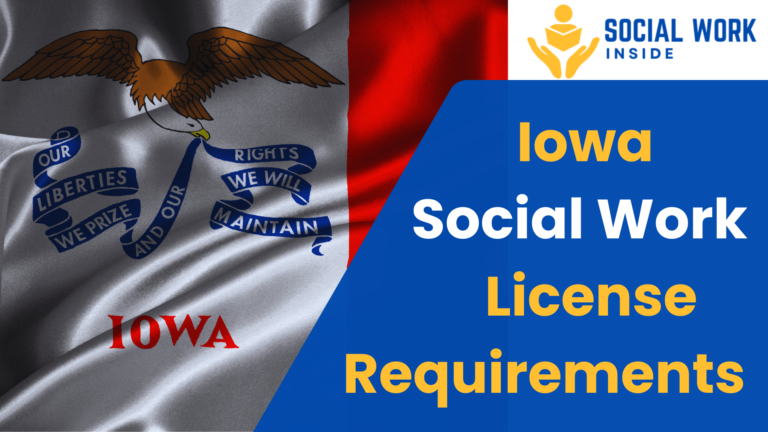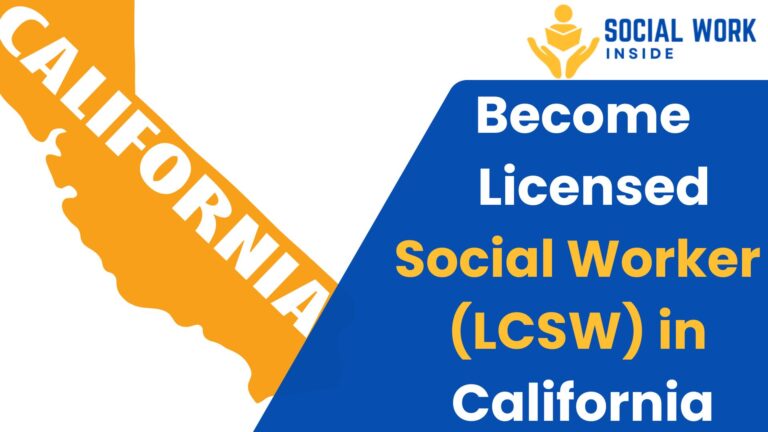How to Get a Delaware Social Work License
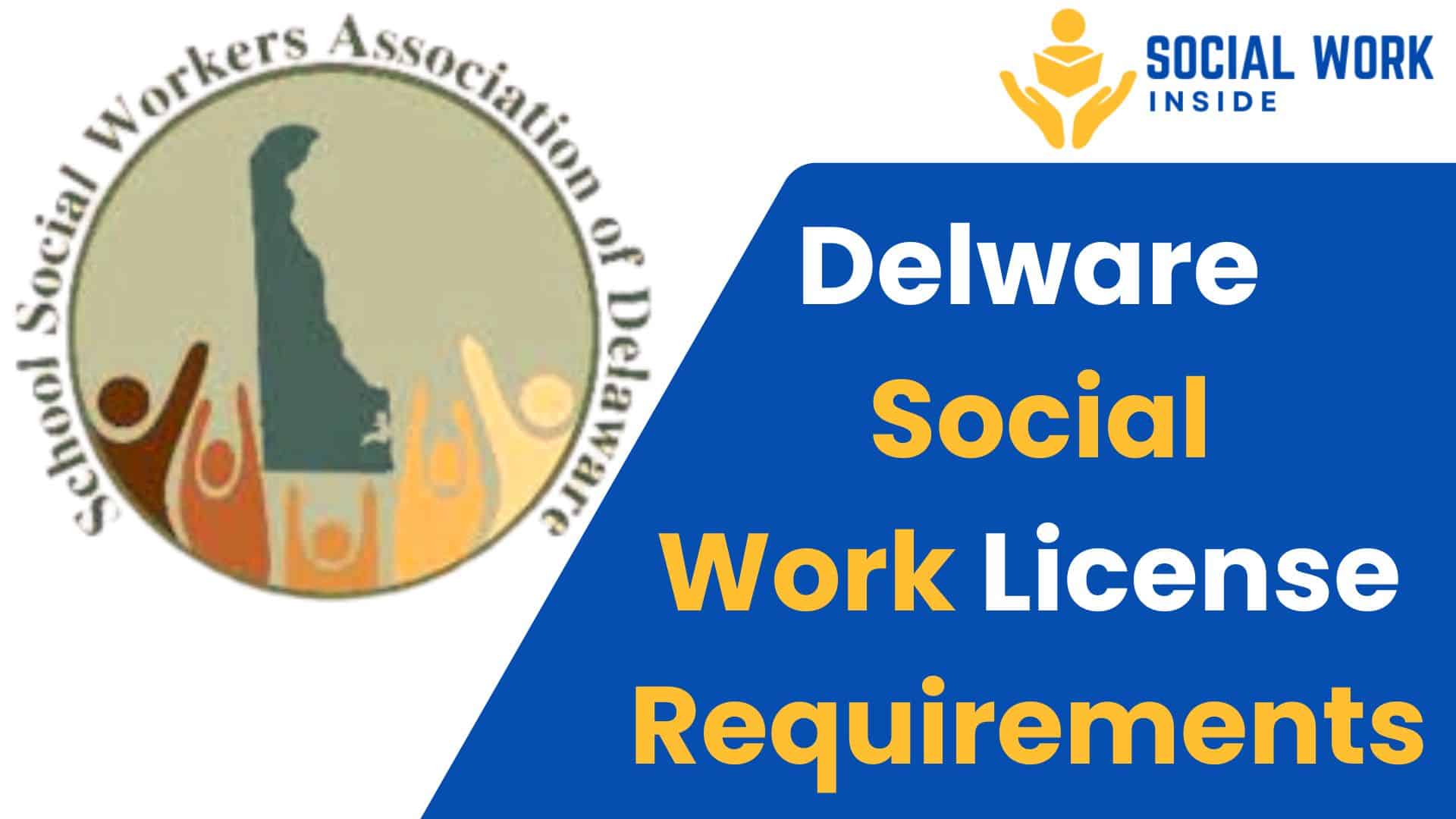
If you want to become a social worker in Delaware, you’ll need a Delaware social work license. The process may seem complicated, but with the right steps, you can get licensed quickly. This guide will walk you through everything you need to know, including education requirements, the licensing process, and tips for passing the social worker exam on your first try. Let’s get started!
Understanding the Delaware Social Work License
A Delaware social work license is required for anyone who wants to practice social work in the state. Delaware has different types of licenses depending on your education and experience level. These include:
- Licensed Master Social Worker (LMSW) – For those with a master’s degree in social work.
- Licensed Clinical Social Worker (LCSW) – For those with a master’s degree plus clinical experience.
Each license requires an application, passing a social worker exam, and meeting other social work certification requirements. The Delaware Board of Social Work Examiners oversees the entire process.
Steps to Getting a Social Work License in Delaware
1. Complete the Required Education
The first step to getting your Delaware social work license is earning a degree in social work. The type of degree you need depends on the license:
- LMSW License: A Master’s degree in Social Work (MSW) from an accredited program.
- LCSW License: An MSW plus at least 3,200 hours of supervised clinical experience.
The program must be accredited by the National Association of Social Workers (NASW). Without an approved degree, you won’t qualify for a license.
2. Submit Your License Application
Once you meet the education requirements, you need to apply for your license through the Delaware Board of Social Work Examiners. Here’s what you’ll need to include:
- Official transcripts from your social work degree program.
- Proof of supervised experience (for LCSW applicants).
- Completed license application form.
- Background check and fingerprinting.
- Application fee payment.
To speed up the process, double-check your application to make sure all required documents are included. Missing paperwork can cause delays.
3. Register for the Social Worker Exam
After submitting your application, the next step is passing the social worker exam. This test is managed by the Association of Social Work Boards (ASWB). There are two different exams:
- Master’s Exam – Required for the LMSW license.
- Clinical Exam – Required for the LCSW license.
To register, visit the ASWB website, pay the exam fee, and schedule a test date. Taking the exam as soon as possible will help you get licensed faster.
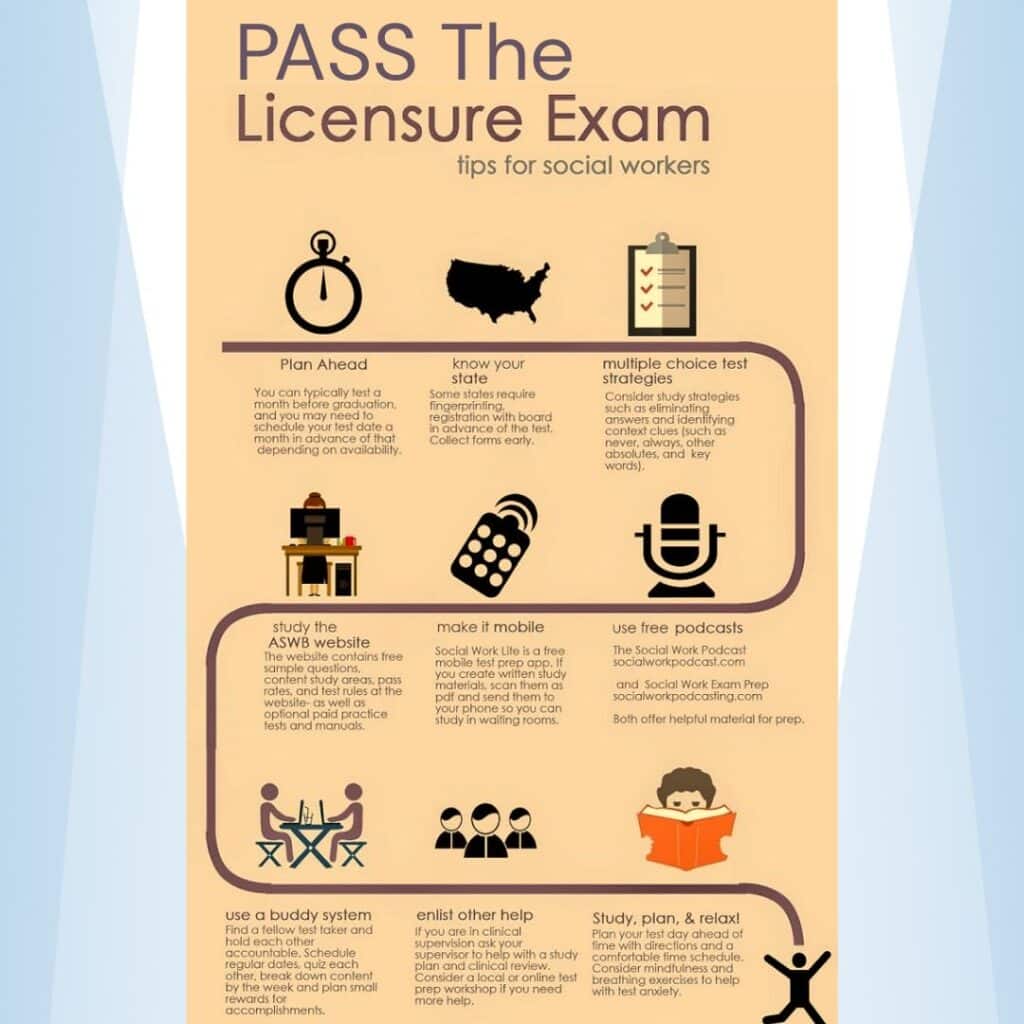
4. Prepare for the Exam
Passing the social worker exam on the first attempt can save you time and stress. Here are some top exam preparation tips:
- Use official ASWB study guides – These materials cover the exact topics on the test.
- Take practice tests – This helps you get familiar with the exam format and timing.
- Join a study group – Learning with others can improve your understanding.
- Create a study schedule – Dedicate at least 2-3 weeks to studying before the exam.
The exam tests your knowledge of social work principles, ethics, and professional practices. The more prepared you are, the better your chances of passing on the first try!
5. Pass the Social Worker Exam
On the day of the exam, arrive early and bring the required ID. The test is multiple-choice and taken on a computer. You’ll get your results immediately after completing the exam.
If you pass, congratulations! You’re one step closer to getting your Delaware social work license. If you don’t pass, don’t worry—you can retake the exam after a waiting period.
6. Receive Your License and Start Practicing
Once you pass the exam, the Delaware Board of Social Work Examiners will review your application. If everything is in order, they will issue your social work certification.
Now, you’re officially a licensed social worker in Delaware and can start your career!
Social Work Degree Programs in Delaware
In the United States, a group called the Council on Social Work Education (CSWE) makes sure social work programs are good enough to teach students well. In Delaware, they’ve given their approval to just two programs: one for a Bachelor of Social Work (BSW) and one for a Master of Social Work (MSW), both at Delaware State University. This school is the only place in Delaware where you can get these special degrees to help people and make a difference!
MSW Programs Offered in Delaware
Delaware State University is the only institution in the state with a fully accredited MSW program by the Council on Social Work Education (CSWE). Located in Dover, with additional campus options in Wilmington, DSU provides a comprehensive advanced generalist curriculum. Here’s a breakdown of the MSW programs available:
| University | Location | Study Duration | Enrollment Type |
| Delaware State University | Dover,(main campus), Wilmington (satellite) | 2 years (full-time), 4 years (part-time) | Full-time, Part-time (Hybrid) |
| Delaware State University (Advanced Standing) | Dover, Wilmington | 1 year (full-time), 2 years (part-time) | Full-time, Part-time (Hybrid) |
Online MSW Programs in Delaware
For students seeking flexibility, Delaware State University offers a fully online MSW program tailored to meet the needs of working professionals or those unable to attend on-campus classes. Below is a detailed table outlining the key aspects of the online MSW program available in Delaware:
| University | Location | Study Length | Enrollment Type |
| Delaware State University | Online (Dover-based administration) | 2 years (full-time), 4 years (part-time) | Full-time, Part-time |
Social Work Salaries in Delaware: A Career Snapshot
| Career Path | Professionals at Work | Yearly Earnings |
|---|---|---|
| Child, Family, and School Social Workers | 1,110 | $41,450 |
| Healthcare Social Workers | 560 Caregivers | $56,330 |
| Mental Health and Substance Abuse Social Workers | 500 Supporters | $49,240 |
| Social Workers, All Other | 140 Specialists | $68,690 |
| Social Work Teachers, Postsecondary | 90 Educators | $86,080 |
How to Become a Social Worker in Delaware
If you’re in a hurry to get licensed, follow these tips:
- Apply as soon as you graduate – Don’t wait! Submit your license application right after finishing your degree.
- Gather all documents in advance – Have transcripts, proof of experience, and background check results ready.
- Schedule your exam quickly – The sooner you take the test, the faster you’ll get licensed.
- Prepare well for the exam – Passing on the first try avoids delays.
- Follow up on your application – Check the status regularly with the Delaware Board of Social Work Examiners.
By being proactive, you can shorten the licensing process and start working sooner!
License Renewal and Continuing Education
After getting your Delaware social work license, you must renew it every two years. The license renewal process includes:
- Completing continuing education (CE) credits.
- Submitting a renewal application.
- Paying renewal fees.
Suggested: A Guide To Social Work Licensing Reciprocity by State
Staying up to date with CE requirements ensures you maintain your license and continue practicing legally.
Delaware Social Work Organizations

- Delaware Community Legal Aid Society, Inc. (CLASI)
- National Association of Social Workers (NASW), Delaware Chapter
- Delaware State University Department of Social Work
- University of Delaware College of Education and Human Development
- Delaware Community Foundation (DCF)
- Delaware Developmental Disabilities Council (DDC)
Delaware Social Work Scholarships
- John P. Healy Memorial Scholarship
- Delaware Higher Education Office (DHEO) Scholarships
- Delaware Scholarship Compendium
- Joseph L. Manganaro Memorial Scholarship (UNICO Foundation, Inc.)
- Scholarship Incentive Program (Delaware Department of Education)
- NAWIC Chapter #96 Scholarship
Final Thoughts
Getting your Delaware social work license doesn’t have to be difficult. By following these steps, preparing well for the social worker exam, and staying organized, you can get licensed quickly and start helping others in your community.

